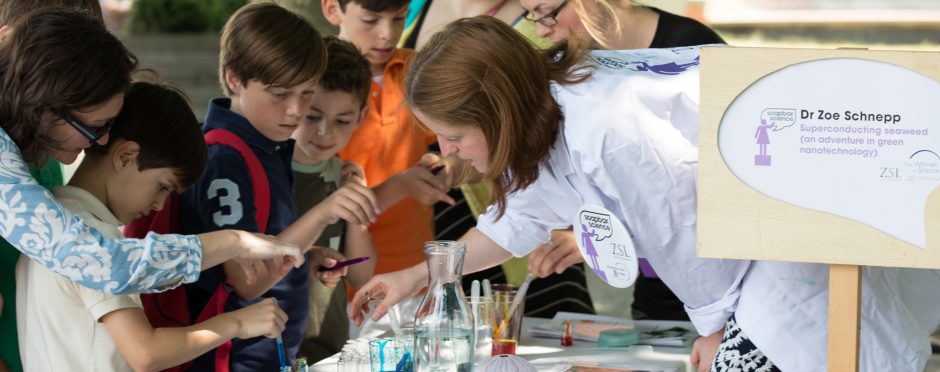Tags
- Aerospace
- Astrophysics
- Back to academia
- Bioengineering
- Career path
- Chemistry
- Climate
- Conservation
- crystals
- Determination
- Ecology
- Engineering
- Evolutionary Biology
- Family
- Genes
- Genetics
- Geology
- human health
- interdisciplinary
- Lecturer
- marine
- Maths
- Meteorology
- Microbiologist
- Neurosciences
- PhD
- Physics
- Planets
- Post-Doc
- privilege
- Psychology
- Public engagement
- robot
- Role models
- Science communication
- Sexism
- Soil ecology
- STEM ambassador
- surgery
- two-bodies problem
- under-representation
- Veterinarian sciences
- virus
- Working environment
- Zoology
Category Archives: Science communication tips
Soapbox Art & Science Oxford is being sponsored by P2i: We catch up with CTO Dr Stephen Coulson about supporting science outreach
Soapbox Art & Science Oxford is generously supported by P2i. Dr Stephen Coulson is the CTO and founder of P2i, the global leader in liquid repellent nanotechnology, delivering hydrophobic nano-coating solutions that provide the highest levels of liquid repellency. … Continue reading
Why Soapbox Science?
By Miss Lydia Bach (@lylubach), Queen’s University Belfast. Lydia will stand on one of our soapboxes in Glasgow, on the 7th of June. She will be talking about food webs, with a talk entitled: “Food (webs) for thought – Or … Continue reading
Posted in Event promotion, Science communication tips
Tagged PhD, Role models, Science communication
Leave a comment
George McGavin’s advice to our speakers, by Dr Louise Janna Johnson
On Tuesday George McGavin, presenter of the BBC’s Monkey Planet, met Soapbox Science speakers to share what he’s learned from being on the box that could help us when we’re up on ours. We met in the basement of Brace … Continue reading
Posted in Science communication tips
Leave a comment
Top tips for Soapbox Science
This month, Soapbox Science organised a science communication workshop for all of its 2014 speakers. The event, supported by Robin Ince and the Learning and Discovery team at the Zoological Society of London (ZSL), provided a fantastic opportunity for the … Continue reading
Posted in Science communication tips
Leave a comment
